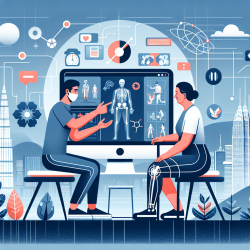The COVID-19 pandemic has been a defining global event, challenging health systems and societies worldwide. As we navigate its complexities, understanding the parallels between immune responses to the virus and societal responses to the pandemic can provide valuable insights for practitioners. The research article "Immune Responses to SARS-CoV2 Mirror Societal Responses to COVID-19: Identifying Factors Underlying a Successful Viral Response" offers a unique perspective on this topic.
The Biological Analogy: Immune and Societal Responses
The human immune system has evolved over millennia to protect against pathogens. Similarly, societies develop mechanisms to manage threats like pandemics. The research highlights how both systems can experience "cytokine storms," where excessive responses cause more harm than good. For practitioners, recognizing these parallels is crucial in developing strategies that prevent such detrimental outcomes.
Key Factors in Effective Responses
- Quick Employment of Adaptive Strategies: Just as the immune system deploys pathogen-specific responses, societies must quickly implement adaptive strategies like vaccination and public health measures. Practitioners should advocate for rapid response plans that include mass testing and contact tracing.
- Enabling Productive Coaction: Effective collaboration between different societal sectors mirrors the coordinated action of immune cells. Practitioners can facilitate this by promoting interdisciplinary cooperation among healthcare providers, policymakers, and community leaders.
- Inhibition of Hazardous Information Loops: Misinformation can exacerbate societal panic, akin to a cytokine storm in the body. Practitioners should work with media and public health officials to ensure accurate information dissemination.
Implementing Research Outcomes
The research provides a framework for practitioners to enhance their skills in pandemic management. By understanding the factors that contribute to successful responses, practitioners can tailor interventions that are both timely and effective.
Encouraging Further Research
The parallels drawn between biological and societal responses open avenues for further study. Practitioners are encouraged to explore these dynamics in different contexts, contributing to a broader understanding of pandemic management.
Conclusion
The insights from the research article underscore the importance of adaptive strategies, collaboration, and information management in responding to pandemics. By applying these principles, practitioners can help mitigate the impact of COVID-19 and future health crises.
To read the original research paper, please follow this link: Immune Responses to SARS-CoV2 Mirror Societal Responses to COVID-19: Identifying Factors Underlying a Successful Viral Response.










